
Decision Making Blog #2: Two under-appreciated sources of leadership power
Some forms of leaders’ power are obvious. Leaders hire and they fire.

Decision Making Blog #1: Better decision making: a neglected route to improvement?
There are two main routes for health and care services to improve the health of the populations they serve. The

Analysts, we need to talk about…….
The future looks incredibly promising for ana
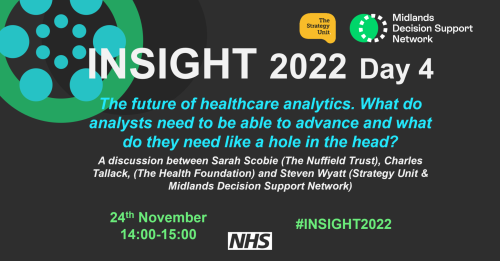
Insight 2022 - Day 4 - The future of healthcare analytics
The future of healthcare analytics.
Insight 2022 - Day 4 - Smarter decision-making for your population
Smarter decision-making for your populationNHS England has identified Population Health Management (PHM) as a core strategic aim f
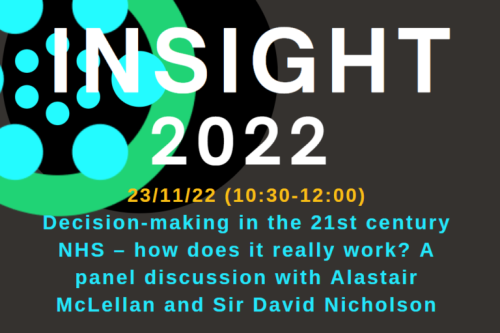
Insight 2022 - Day 3 - Decision-making in the 21st century NHS – how does it really work?
Decision-making in the 21st century NHS – how does it really work?The NHS Long Term Plan placed an emphasis on better use of data
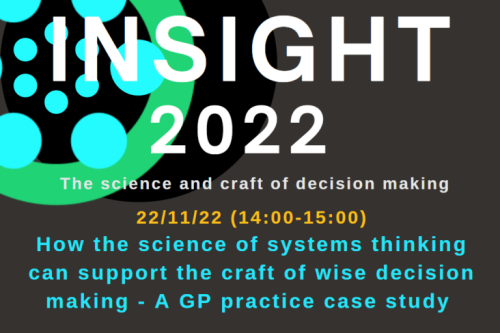
Insight 2022 - Day 2 - How the science of systems thinking can support the craft of wise decision making – A GP practice case study
How the science of systems thinking can support the craft of wise decision making – A GP practice case studyIf yo
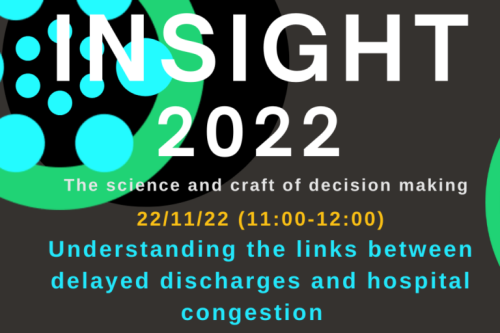
Insight 2022 - Day 2 - Understanding the links between delayed discharges and hospital congestion
Understanding the links between delayed discharges and hospital congestionIn January 2022 NHS figures showed that
Insight 2022 - Day 1 - ICSs working together to be intelligence-led organisations: lessons from history
ICSs working together to be intelligence-led organisations: lessons from historyHow can Integrated Care Systems (ICS

What matters when waiting? – involving the public in NHS waiting list prioritisation
As the NHS emerged out of the pandemic, it was confronted with the challenge of not only recovery of unprecedented waiting lists, but with inequalities which required attention. NHS leaders challenged providers to restore inclusively and at University Hospitals Coventry and Warwickshire NHS Trust, we have developed a way of doing just that, whilst simultaneously reducing waiting times for all.

Infant-feeding problems during the pandemic
Emergency department attendances fell dramatically and systematically during the early phases of the COVID-19 pandemic. This effect was almost universal, affecting people from all parts of society and for all health conditions. But in our recent paper we highlight one notable exception to this rule -presentations at Emergency Departments for infant-feeding problems increased during the pandemic.

What was the question again?
We hear a lot about what’s stopping the NHS making the most of its army of talented analysts. Some say we just need more data, or data of better quality. Others point to deficiencies in our infrastructure, IT kit or the software we use. But I’m not so sure. For me the biggest shortfall is in good questions that we can feasibly address.

Inequalities in access to healthcare - what’s our next move?
Our research, published in the Lancet Regional Health Europe, highlights substantial inequities in access to elective hip replacement surgery. We found no evidence that these inequities reduced between 2006 and 2016.

Blog: Strategies to reduce inequalities in planned care
MDSN responds to recent reports addressing the NHS waiting list crisis

‘Might’ is right
A good idea can be ruined by over-selling.
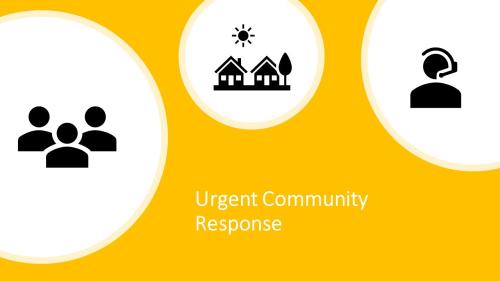
Urgent Community Response – What Works?
The Strategy Unit, with our partners Ipsos, has been commissioned by NHS England and NHS Improvement (NHSEI) to provide a long-term national evaluation of the Urgent Community Response programme rolled-out across England. The programme aims to shift resources to home and community-based services as part of the NHS commitment to providing the right care, to the right people, at the right time. And there are a range of outputs from the early work that provide learning for local systems as they develop their services.

We saw them before they were famous: reflections on AphA’s away day
In June 1976, the Sex Pistols played Manchester's Lesser Free Trade Hall.

Bringing patient flow modelling into general practice
With general practice appointments hitting the highest numbers on record (34.8 million in England alone in November 2021), careful organisation and planning for patient appointments is increasingly important.
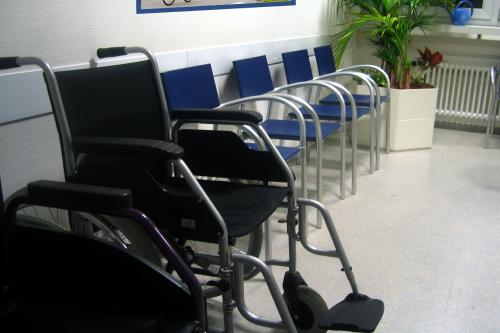
Treating people on waiting lists: who decides what is fair?
Waiting lists for elective care are in the news. The national plan has been issued, with the expectation that lists will continue to rise for some years - and that long waiting will not disappear anytime soon. Addressing this ‘backlog’ will remain a fundamental challenge for some time to come.